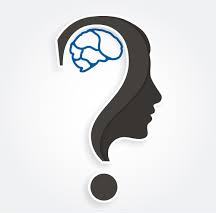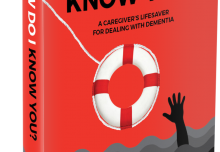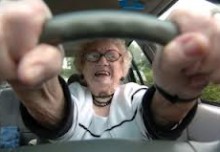 Dementia is the condition that adult Americans fear the most, and tragically there are conditions that can give a false alarm to trigger that fear. What walks like dementia and quacks like dementia may not necessarily be dementia! There are a number of medical conditions that mimic dementia – quite convincingly – until the condition is examined more closely and treatment is administered. So, in a real sense, dementia is a diagnosis by exclusion…diagnosis by eliminating the “look alikes”. Did you know that…
Dementia is the condition that adult Americans fear the most, and tragically there are conditions that can give a false alarm to trigger that fear. What walks like dementia and quacks like dementia may not necessarily be dementia! There are a number of medical conditions that mimic dementia – quite convincingly – until the condition is examined more closely and treatment is administered. So, in a real sense, dementia is a diagnosis by exclusion…diagnosis by eliminating the “look alikes”. Did you know that…
- Thyroid disease can mimic dementia– Physicians can readily diagnose when the thyroid gland is producing too much or too little hormone by calibrating the levels of Thyroid Stimulating Hormone in the blood. But it often takes a specialist, an endocrinologist to make the definitive call. They talk about “subclinical characteristics” such as fuzzy memory along with others like dry skin or fatigue or hair loss. Hypothyroidism is one that can be readily treated by a thyroid supplement and symptoms simply fade away.
- Diabetes can mimic dementia – As if it is not difficult for a diabetic to manage sugar and carbohydrate intake to avoid “running high or low,” the condition can actually affect memory as well. In older adults who have not yet been diagnosed with type 2 diabetes, they may appear irritable and confused or may have difficulty with recall. These mental states are caused by changes in the body’s blood vessels which may not give enough flow to the brain resulting in dementia-like symptoms. If diagnosed early the problems can be reversed and normal cognition restored.
- Alcohol abuse can mimic dementia – We all have seen someone who has been “over-served,” and that person is not only an impaired driver, but their brains generally are not sharp. Well, the next day that same person recovered motor and cognitive functions, and life is normal again. Repeat offenders, however, will create more lasting effects on the brain and memory shortcomings. The memory issues may not be dementia, but they can only be reversed if a person stops the abusive behavior early enough, and for some the cure is to abstain entirely.
So these are three conditions in which dementia can be the wrong diagnosis, and they are also issues that can be remedied. There are more conditions that can pose as dementia, but they are not. They may not just go away on their own, but unlike dementia, they can, in fact, “go away.” More to come next week.
Charlotte Bishop is a Caregiver Coach, an Aging Life Care Advisor, a Geriatric Care Manager and founder of Creative Care Management, certified professionals who are geriatric advocates, resources, counselors and friends to older adults and their families in metropolitan Chicago. She also is the co-author of How Do I Know You? A Caregiver’s Lifesaver for Dealing with Dementia.







